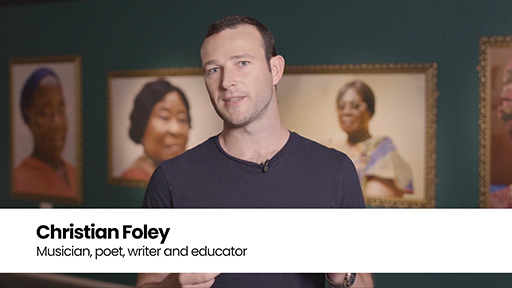2 Having difficult conversations about race
Having conversations about race, racism, anti-racism and anti-Blackness can be really uncomfortable! So why do it? The next video is why!

Transcript: Video 3 Christian Foley
As Christian passionately says, a 10-year-old Black boy received hate mail and death threats from white supremacists for writing a poem entitled ‘Black Lives Matter’. Racists want to shut any positive conversation about race down and this is normally done with real or imagined threats of violence.
After the Black Lives Matter protests in 2020, with many organisations posting black squares in solidarity, Wilson and Jones’ article (2020) ‘Dear senior university leaders: what will you say you did to address racism in higher education?’ [Tip: hold Ctrl and click a link to open it in a new tab. (Hide tip)] directly challenged what is mainly white senior leaders of universities on what they would do to tackle institutional racism when the global light no longer shone on the horrors of George Floyd’s murder and the ensuing protests.
Black feminist writer Toni Morrison (1992) describes the invisibility of whiteness as a fishbowl that contains fish and water. The fishbowl itself provides meaning as ‘a fishbowl’ as it is the ‘thing’ that contains the water and the fish, but one invariably focuses on the fish swimming in the water, and not the constraints or structure of the fishbowl itself.
Although George Floyd’s murder was in the US, anti-Blackness is universal. Statements are often made such as: ‘What has slavery got to do with me/the twenty-first century?’ and ‘What has George Floyd got to do with the UK? It’s different here’.
You’ll next watch a video clip by George The Poet, who challenges the view that racism is worse in the US. Reflect on the example that Christian discusses in the video that you watched earlier in this section.
Activity 2
As you watch the video below, reflect on how YOU embrace, welcome, enjoy, reject, rebuff, put off, discount or otherwise regard ‘race conversations’.
What are the words you would use to explain how you feel and reflect on why? Do you not feel ready or equipped? What can you do about this? Remember, it is not for marginalised groups to educate others.
See also …
Ken Hardy on making talking about race our work: Ken Hardy explains how the centrality of White America leaves many Black people feeling as though they're trapped in a wall-less prison.
Reverse racism - Uncomfortable conversations with a Black man: Emmanuel Acho sits down to have another uncomfortable conversation, where he directly addresses questions and emails from white brothers and sisters, all over the world.
